Your basket is currently empty!
Written by
Best Solar Panels for 2025: UK Reviews & Guide
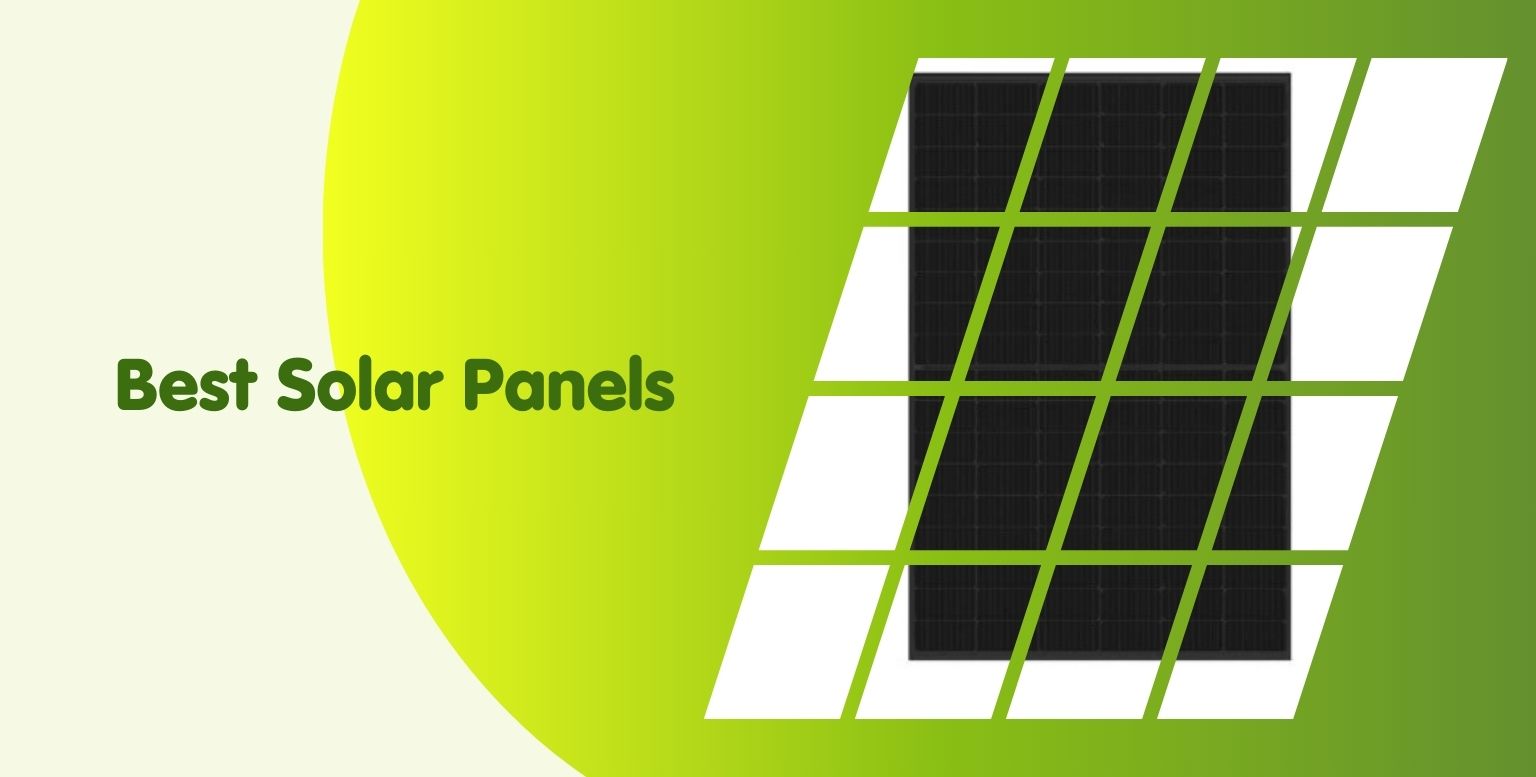
Determining the best solar panels for your needs can be daunting.
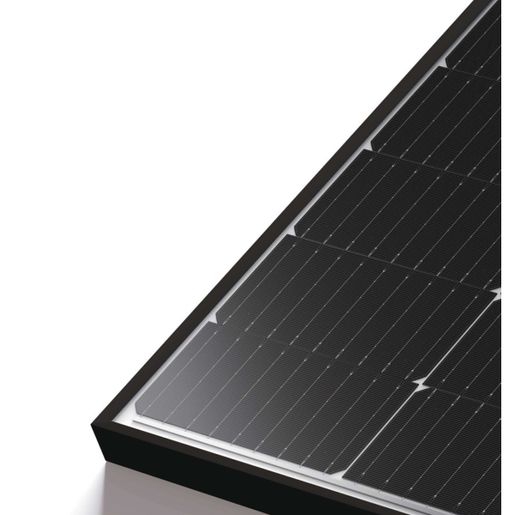
This guide distils extensive research and industry insights to help you navigate the 2025 UK solar panel market.
From efficiency to longevity and cost, we’ll explore top-performing solar panels tailored to different requirements and budgets.
Let’s examine the specifics to ensure you get the best PV panels and that your investment is sound and sustainable.
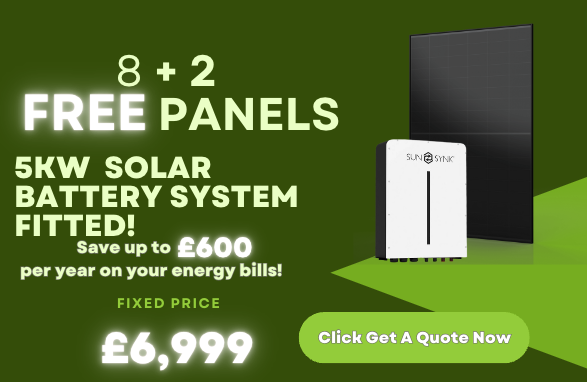
Start Your Solar Project Today
Best Solar Panels & Battery Storage Installation Deals
We price match too!
Best UK Solar Panels Overview
- The LONGi Solar HI-MO 5, SunPower Maxeon 6 AC 415W, and Jinko Tiger Neo 420W N-Type 54 Cell are top choices for solar panels in 2025 UK, chosen for their efficiency, reliability, and warranty.
- The SunPower Maxeon 6 AC 415W stands out as the most efficient solar panels with a 22.6% rate, while the Jinko Tiger Neo is labeled most reliable. The JA Solar JAM72S30, on the other hand, offers the highest power output, suited for large homes with substantial energy needs.
- Choosing solar PV panels involves considering factors such as efficiency, power output, warranty, costs, and the types of solar panels available. Installation quality and looking into financial incentives are also important aspects of the solar panel installation process.
Top Solar Panels for UK Homes in 2025
The journey for new solar panels often presents homeowners with a plethora of choices.
Therefore, our experts at Green Central have combined their expertise and thorough analysis, sought advice from industry manufacturers, examined technical data, and used our years of experience to identify the best solar panels currently available.
The result is a curated list of the best solar panels for UK homes in 2025, including:
- LONGi Solar HI-MO 5 – Best Overall
- Project Solar Evolution Titan 445W – Best Alternative
- SunPower Maxeon 6 AC 415W – Most Efficient
- Jinko Tiger Neo 420W N-Type 54 Cell – Most Reliable
- JA Solar JAM72S30 – Most Powerful
- Suntech Ultra V Mini Mono 405W – Best Budget Option
These panels are the epitome of cutting-edge technology, designed to deliver optimal performance and profound value for your investment.
Choosing the right panel extends beyond personal preference; it’s a matter of long-term sustainability. The quest for the best solar solution hinges on three pillars:
- Efficiency: ensures that the maximum amount of sunlight is converted into usable power
- Reliability: guarantees a consistent energy yield over time
- Warranty: protects your investment
These elements combine to form the backbone of our solar panel evaluations, focusing on sustainable benefits that stand the test of time.
Start Your Solar Project Today
Best Solar Panels & Battery Storage Installation Deals
We price match too!
Best Overall: LONGi Solar HI-MO 5
The LONGi Solar HI-MO 5 stands out as the best overall solar panel. It offers the following features:
- Harnesses the power of HPBC cell technology
- Sets new industry standards and exceeds them with efficiencies beyond 25%
- Blends elegance with high-performance
- Full rear welding technology fortifies against micro-cracking
- Pre-installed intelligent optimiser for active safety and smart management capabilities

This LONGi solar array panel is a testament to solar innovation and is not just about good looks, especially when compared to other solar panels.
As standard with most Chinese solar panels these days, longevity and reliability are the hallmarks of LONGi’s offering, with high-quality materials ensuring the module’s endurance.
A sleek and aesthetically pleasing design in pure black adds to its appeal.
But what truly sets it apart is the reassurance provided by its 15-year warranty on materials and manufacturing, coupled with a 25-year linear power output warranty.
This combination of cutting-edge technology, top-notch efficiency, steadfast reliability, and comprehensive warranty coverage is what makes the LONGi Solar HI-MO 5 the best overall solar panel for UK homes in 2025.
Most Efficient: SunPower Maxeon 6 AC 415W
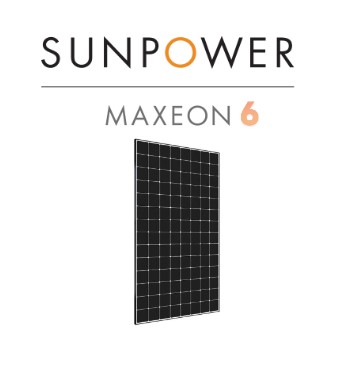
With regards to solar panels, efficiency is key, and the SunPower Maxeon 6 AC 415W excels in this domain.
With an astounding efficiency rating of 22.6%, this panel stands at the pinnacle of photovoltaic technology. It’s not just the efficiency that’s impressive; the Maxeon 6 AC 415W boasts features such as:
- High output
- Crack and corrosion resistance
- Enhanced shade tolerance
- Independent functioning of each panel due to maximised power point tracking (MPPT)
Considered the best all-rounder in the test, the panel has the following features:
- High efficiency
- Low annual degradation rate of just 0.25%
- Maintains peak performance for many years to come
- 25-year warranty
- High-performance, eco-friendly, and heat-resistant powerhouse
Ranking within the top 10% of efficiency ratings, the SunPower Maxeon 6 AC 415W is undeniably one of the most efficient solar panels on the market, setting the standard for others to follow.
Start Your Solar Project Today
Best Solar Panels & Battery Storage Installation Deals
We price match too!
Most Reliable: Jinko Tiger Neo 420W N-Type 54 Cell
Solar panels must be reliable to consistently meet your home’s energy needs over the years.
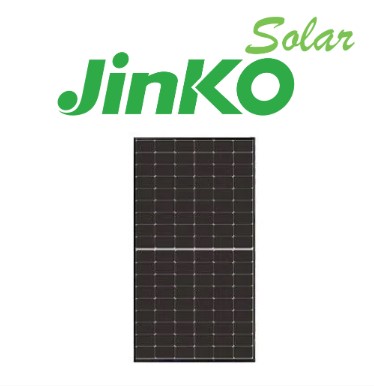
The Jinko Tiger Neo 420W N-Type 54 Cell emerges as the most reliable panel, a title it earns through customer reviews and expert assessments.
With a remarkable energy output of 420 Watts, these Jinko solar panels promises high performance and dependability.
The Tiger Neo’s reliability is rooted in its state-of-the-art technology, which ensures sustained energy production even under challenging conditions.
Homeowners can rest easy knowing that their investment is secure, backed by Jinko’s reputation for excellence and benchmarks established by entities such as PV Evolution Labs (PVEL).
When it comes to a solar panel that you can count on for years to come, the Jinko Tiger Neo 420W N-Type 54 Cell stands out from the pack, offering both power and peace of mind.
Most Powerful: JA Solar JAM72S30
The JA Solar JAM72S30 is ideally suited for homes with high energy needs. Its formidable 550W maximum power output means it’s not just powerful, it’s a veritable titan in the realm of solar panels.
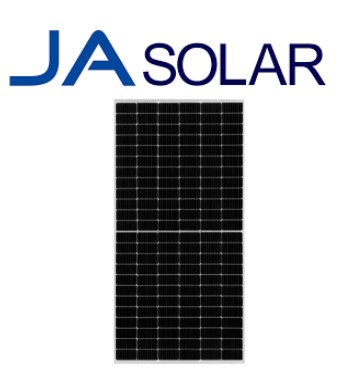
This sheer power is particularly beneficial for larger homes, where the energy needs are greater, and the roof space can accommodate such robust panels.
The JAM72S30’s high output can efficiently cover the entire energy requirements of a substantial household or even allow homeowners to consider going off-grid.
It also opens up the possibility of maximising income through the Smart Export Guarantee tariffs by selling excess energy back to the grid.
When it comes to raw power, the JA Solar JAM72S30 is unmatched, ensuring that even the most energy-hungry homes stay powered throughout the year.
Start Your Solar Project Today
Best Solar Panels & Battery Storage Installation Deals
We price match too!
Best Budget Option: Suntech Ultra V Mini Mono 405W
The advancements in solar technology have made it increasingly accessible. The Suntech Ultra V Mini Mono 405W is a prime example of an affordable solar solution.
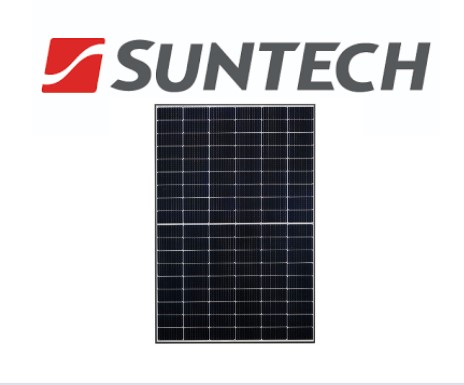
Priced at a wallet-friendly £170 per panel, this option is a boon for budget-conscious homeowners looking to embrace solar energy without breaking the bank.
Despite its affordability, the Suntech Ultra V Mini Mono 405W does not skimp on performance, offering optimised power generation and consistent energy output, even in low-light conditions.
The Suntech Ultra V Mini Mono 405W solar panel offers the following benefits:
- 405W power output, striking the perfect balance between energy production and cost savings
- Competitively low degradation rate, ensuring durability and sustained performance over time
- An attractive proposition for those looking to dip their toes into the solar waters
- An excellent choice for homeowners seeking a budget solar panel that doesn’t compromise on quality.
Best Alternative: Project Solar Evolution Titan 445W
Occasionally, undiscovered gems lie off the beaten path, and the Project Solar Evolution Titan 445W is certainly one of these.
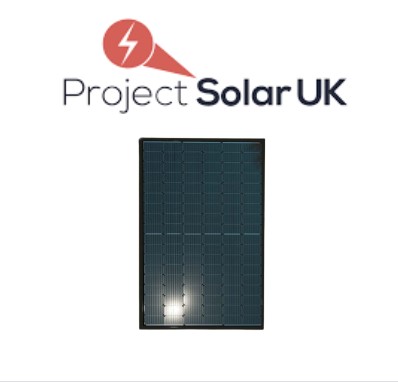
With an impressive efficiency of 21.01% under ideal conditions, this panel is a formidable alternative to more mainstream options. Its PERC technology, which captures reflected sunlight back into the cell, boosts energy production by a significant margin.
A lifetime warranty accompanies the Project Solar Evolution Titan 445W, underscoring the manufacturer’s confidence in its product’s performance and longevity. The panel’s features include:
- Ultra-black appearance, adding a sleek, modern touch to any home
- Enhanced curb appeal and environmental footprint
- Tailored quotes for a bespoke solution, ensuring each homeowner receives a system that perfectly meets their needs.
Factors to Consider When Choosing Solar Panels
Exploring the solar market can feel as overwhelming as the expansive sky. When choosing solar panels, several key factors come into play:
- Efficiency
- Power output
- Warranty
- Cost
Each of these aspects plays a pivotal role in determining the right solar panels for your home, and understanding them is crucial to making an informed decision.
Efficiency
Efficiency forms the bedrock of a solar panel’s performance and is one of the main advantages of solar power. It measures the panel’s ability to convert sunlight into electricity, and a higher efficiency rating means more electricity for your home.
Monocrystalline solar panels are particularly known for their high efficiency rates, often ranging from 15 to 22 percent, which can be a determining factor for homes with limited space.
Various factors influence a solar panel’s efficiency, including:
- Light reflection
- Sun intensity
- Cloud cover
- Temperature
Notably, the temperature coefficient is a critical factor, as it indicates how much panel efficiency decreases when the temperature rises above 25°C.
Thanks to recent technological advancements, some high-efficiency models have pushed the average solar panel efficiency close to 23%. This progress reduces the number of panels required and ultimately lowers energy costs. So, with most solar panels available today, how many solar panels would you need now?
Power Output
The power output of a solar panel, which directly influences the amount of electricity generated, plays a significant role in potential cost savings. Solar panels with higher power outputs offer a significant advantage, especially for homes with limited roof space, allowing for substantial energy generation with fewer panels.
High-output panels like the JA Solar JAM72S30, which can range from 525W to 550W, are particularly beneficial for larger homes with higher energy needs.
The way solar panels are wired also plays a role, with series connections increasing voltage and parallel connections boosting current, ultimately affecting the system’s overall power output.
Start Your Solar Project Today
Best Solar Panels & Battery Storage Installation Deals
We price match too!
Warranty
A comprehensive warranty acts as a safeguard for your solar investment. It ensures that your panels will perform optimally and that any defects will be repaired or replaced without additional costs. Some key features of a comprehensive warranty include:
- Coverage for a specified period of time (e.g. 25 years)
- Protection against defects in materials and workmanship
- Performance warranties that guarantee a certain level of electricity production over a set period
These warranties, often considered the best solar panel warranty, provide peace of mind and protect your investment in residential solar panels.
The length and terms of a warranty can be a strong indicator of a manufacturer’s confidence in their product. For instance, Jinko Tiger Neo’s 25- to 30-year product warranty is a resounding testament to its reliability and longevity.
Moreover, certain panels like the REC Alpha Pure-R come with an extended warranty that covers performance and labor if installed by a certified professional, emphasising the importance of expert installation.
Cost and Value for Money
Weighing cost versus long-term value is an essential consideration when selecting solar panels. In the UK, the average solar panel system cost ranges from £5,000 to £17,000, varying based on several factors such as system size and installation complexity.
With potential savings of approximately £1,190 annually on energy bills, it’s clear that solar panels worth can offer significant financial benefits in the long run.
Opting for panels with a higher power output may increase upfront costs but can reduce the total number of panels needed, affecting both installation costs and long-term value.
Despite a shorter warranty period, budget-friendly options like the LONGi Solar 525W Hi-Mo6 panel have received positive feedback for delivering high output at an affordable cost.
Types of Solar Panels: Monocrystalline vs. Polycrystalline
Prospective solar adopters often face the decision – monocrystalline vs polycrystalline solar panels.
Monocrystalline panels are more efficient and sport a sleek black finish, thanks to the use of a single silicon crystal in their construction. While they tend to be more powerful, they are also generally more expensive.
On the flip side, polycrystalline panels, made by melting multiple silicon crystals together, offer a slight dip in efficiency but make up for it with their affordability and characteristic blue hue.
The decision often boils down to a trade-off between the superior efficiency and aesthetics of monocrystalline panels and the cost advantages of polycrystalline options.
Start Your Solar Project Today
Best Solar Panels & Battery Storage Installation Deals
We price match too!
How to Find the Right Solar Installer
Finding the right solar installer is just as important as choosing the perfect panels. An installer’s expertise can significantly influence the performance and reliability of your solar panel system.
The journey to find the right solar installer begins with gathering information and seeking advice from solar experts, like those at ESE Group, who can provide invaluable guidance tailored to your needs.
Homeowners should:
- Gather multiple quotes from potential installers
- Carefully compare options to find a solution that fits both their energy requirements and their budget
- Educate themselves on local solar policies
- Seek feedback from neighbors who have already gone solar
- Verify the certifications and credentials of the solar installer to ensure they’re making an informed decision.
Summary
In wrapping up, the solar panels that have made our top picks list for UK homes in 2025 are nothing short of exceptional.
They offer a compelling blend of efficiency, reliability, and value, each excelling in its unique way.
LONGi Solar’s HI-MO 5 reigns as the best overall, SunPower’s Maxeon 6 AC shines in efficiency, Jinko’s Tiger Neo is the epitome of reliability, JA Solar’s JAM72S30 wields unmatched power, Suntech’s Ultra V Mini Mono is budget-friendly, and Project Solar’s Evolution Titan is a stellar alternative.
Remember, the journey to solar enlightenment involves considering factors like efficiency, power output, warranty, and cost, as well as understanding the types of panels, the installation process, and the incentives available.
Maintenance is minimal, the environmental impact is profound, and choosing the right installer is the final, crucial step.
May this guide illuminate your path to a brighter, more sustainable future under the sun.
Start Your Solar Project Today
Best Solar Panels & Battery Storage Installation Deals
We price match too!
Frequently Asked Questions
What is the best make of solar PV panels?
The LONGi Solar HI-MO5 solar panels are the best overall, closely followed by SunPower’s Maxeon 6 panel, which is a popular choice for homeowners due to its high output, warranty, and reliability.
What makes monocrystalline solar panels more efficient than polycrystalline panels?
Monocrystalline solar panels are more efficient than polycrystalline panels because they are made from a single silicon crystal, enabling better electron flow and higher efficiency rates.
This results in efficiency ranging from 15 to 22 percent compared to the 12 to 17 percent range for polycrystalline panels.
Can installing solar panels really lead to significant energy bill savings?
Yes, installing solar panels can lead to significant energy bill savings. On average, UK homeowners can potentially save around £1,190 annually on their energy bills, leading to a break-even point in about eight years.
How long do solar panels last, and what maintenance do they require?
Solar panels typically last 20 to 40 years and require minimal maintenance, usually just periodic cleaning to remove obstructions like dirt or leaves, which is recommended two to four times a year for optimal efficiency.
Are there any financial incentives for installing solar panels in the UK?
Yes, there are financial incentives for installing solar panels in the UK, such as grants, a temporary VAT reduction to 0% until March 2027, and the Smart Export Guarantee.
Start Your Solar Project Today
Best Solar Panels & Battery Storage Installation Deals
We price match too!
Written by
Start Your Solar Project Today
Best Solar Panels & Battery Storage Installation Deals
We price match too!
What is in this article?
- Best UK Solar Panels Overview
- Top Solar Panels for UK Homes in 2025
- Best Overall: LONGi Solar HI-MO 5
- Most Efficient: SunPower Maxeon 6 AC 415W
- Most Reliable: Jinko Tiger Neo 420W N-Type 54 Cell
- Most Powerful: JA Solar JAM72S30
- Best Budget Option: Suntech Ultra V Mini Mono 405W
- Best Alternative: Project Solar Evolution Titan 445W
- Factors to Consider When Choosing Solar Panels
- How to Find the Right Solar Installer
- Summary
- Frequently Asked Questions





